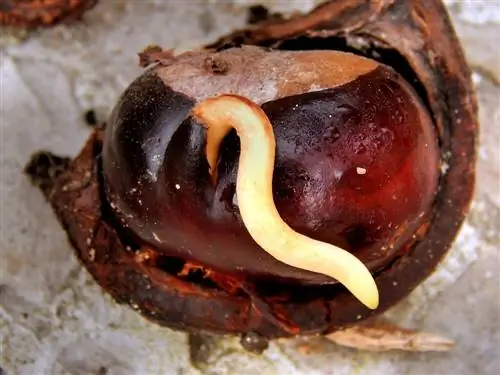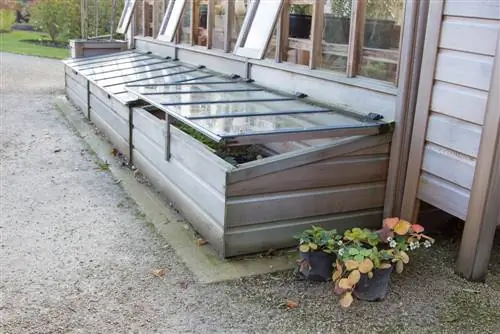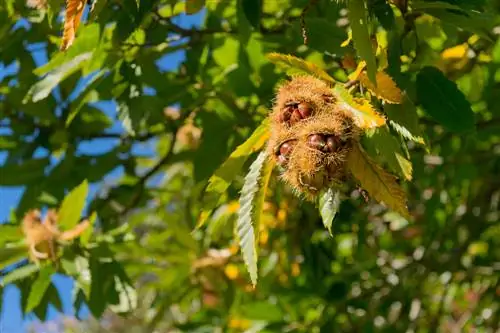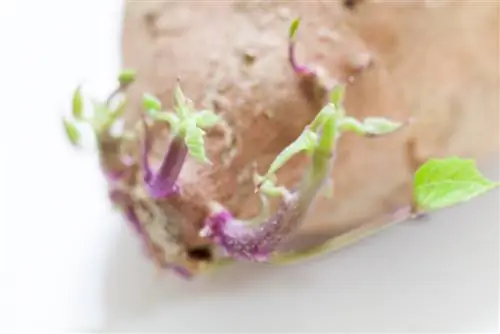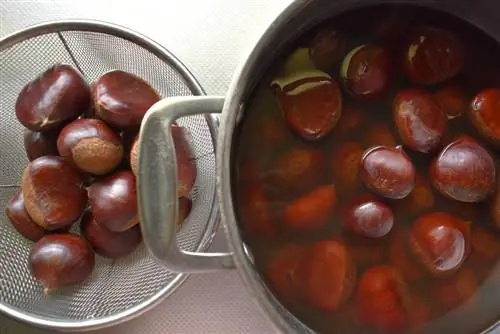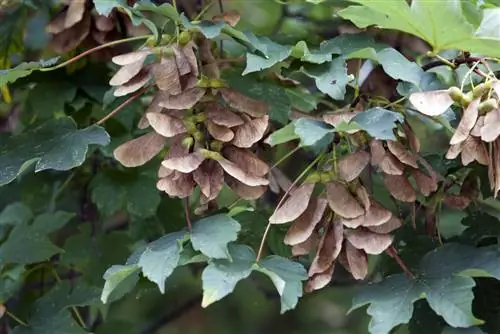- Author admin leonars@hobbygardeners.com.
- Public 2023-12-16 16:46.
- Last modified 2025-01-23 11:21.
In principle, all chestnuts can germinate as long as they are he althy. Some pests, such as the chestnut moth or the chestnut borer, damage the fruits, which of course can no longer germinate. In addition, collected chestnuts are not of the same variety.
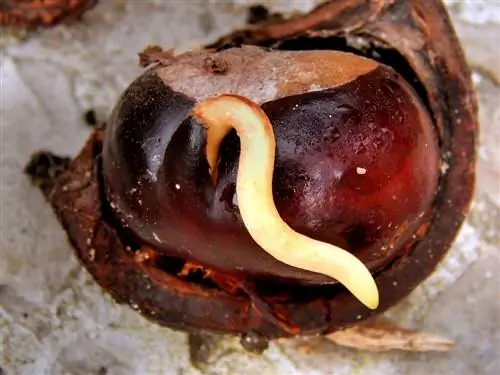
How do you germinate a chestnut?
Chestnuts germinate by being exposed to cold as a cold germinator and planted in moist, nutrient-poor substrate. The seeds should not be dried and only he althy specimens should be used. Uniform moisture during germination is important.
So if you collect chestnuts from a tree because you want to grow that particular variety, you may be disappointed with the first harvest. Because fertilization with another variety mixes the genetic material.
Under what conditions does the chestnut germinate?
The chestnut is one of the so-called cold germs. This means that the seeds must first be exposed to a certain degree of cold in order to be able to germinate. Fresh or moist chestnuts also germinate significantly better than dry ones. These should be watered for some time before sowing.
Can chestnut germinate in the garden?
Just leave fallen chestnuts lying in your garden, then one or two germs will definitely develop. You can plant the small trees in a different place next year. Sowing in the garden is also possible. However, chestnuts are very tasty for some animals, which could cause some seed loss.
How to grow a chestnut from seeds?
To determine whether your chestnut seeds are disease-free, place the fruit in a container of water. You can safely dispose of chestnuts that are floating at the top; they may have been eaten empty and no longer able to germinate. He althy chestnuts germinate very easily and reliably.
Place the fresh chestnuts in a nutrient-poor substrate. During germination, keep the seeds moist but not wet. Place the growing container in the cold (refrigerator or freezer) for at least a few days. Alternatively, you can also cool the chestnuts before sowing. Overwintering in the garden is also possible.
The most important things in brief:
- very good germination
- Cold germination
- It's better not to let seeds dry
- sow only he althy seeds
- keep evenly moist
Tip
The chestnut is a cold germinator. If you want to grow chestnuts indoors, expose the seeds to the cold for at least a few days beforehand.

